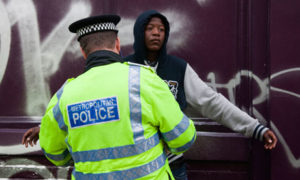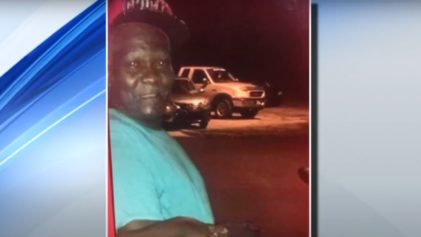
High arrest rates of Black men while reducing violent crime starts with the police having a severe lack of knowledge of the law. Of the incident in question, Patrolman Ashmore and Patrolman Beechem demonstrated extreme ignorance of the law. I know the law and was shocked by not only how they could not articulate the law and answer simple questions, but also how poorly they did their jobs (they allowed the complainant and the violator to hear each other give their sides of the story), their lack of common sense and their rude, argumentative, provocative and unprofessional behavior. A Black male friend was a victim of battery (violent crime). The officers did not know what to charge the violator who is not a Black male, so Beechem wanted to arrest both for disturbing the peace. They wanted to arrest a Black male.
The reduction in violent crime comes when Patrolman Beechem threatens the victim that if he pursues battery charges against the violator and she has to write a report, then she will arrest both the violator and the victim for disturbing the peace. Therefore, my friend opted not to pursue battery charges against the violator so he does not get arrested (for nothing). Ergo, a reduction in violent crime since the battery charge will not be pursued. The police did not make a report.
We were astounded by Patrolman Beechem’s laziness and blackmail, for the video footage clearly shows that only one person committed a crime and only one person disturbed the peace. On both accounts, the only violator was the front desk clerk of the hotel, no one else. Patrolman Beechem either does not care that a battery took place or she just does not want to do her job. We learned that both were the case. Even worse, she was wearing a body camera. Was it on?
What led to the battery, then the worst piece of law enforcement we have ever witnessed?
On the morning of Monday, Sept. 1, 2014, a friend and I were checking out of a hotel. Upon checking out of the hotel, the front desk informed us there would be an additional charge. The clerk could not believe we got such good deals. We were perplexed by this statement and wondered why we were given an extra charge. We paid for the rooms online through an Internet booking site, and we did not have any incidentals. To combat this unauthorized transaction, we asked for the registration form that we signed at check-in. This is to determine whether the front desk clerk altered the form after we signed. The front desk clerk refused to provide a copy. We knew it must be because the registration form was altered. We then asked for proof of the added charge by getting a copy of the receipt. Given it was an unauthorized charge, we had no idea how much extra we were charged. The front desk clerk refused to give us a receipt. We insisted on getting a hard copy of something and stated we were entitled to these documents.
Having caught the front desk clerk red-handed on camera, the clerk went ballistic and took a swing at my friend, striking him and knocking the phone out his hand to the floor. The clerk then ran behind the front-desk counter. We ran out of the hotel because we did not know if the clerk was going back for a gun. We quickly called the police to report the incident. We ran a distance from the hotel and did not return to its premises.
The police arrived, first Patrolman Ashmore. He was in over his head because he did not know the law. He called for assistance. Patrolman Beechem appeared and took over as she must be Ashmore’s superior. Unfortunately, her knowledge of the law was worse. She tried to articulate the law, but failed miserably. A supervisor — who refused to give us his name — came to the hotel, but never got out of the SUV. The supervisor ran the license plates on our car. The front desk clerk told the supervisor which car was ours. At no time did we go to our car, so why did the supervisor run our plates? We did nothing wrong and the vehicle was not a part of the incident. Why were the police placing us under investigation? Part of it was because they wanted something to cancel out the battery charge (reduce violent crime) via blackmail and to find a way to arrest a Black male. Also, it was because Patrolman Ashmore has a relationship with one of the hotel employees.
My friend and I could not believe they were reminiscing in front of us. It was clear that we would not get justice. The police could not find fault in anything we did or the car, so we just left the hotel.
In the end, we learned why some Black people do not report crimes to the police. If Black people do call the police, then they may be subject to arrest for no lawful reason. That is, if Blacks pursue charges against someone who harmed them, then they might be threatened with arrest. As a result, Black people do not report crimes to the police, do not talk to the police and do not trust the police. If Black people continue to seek justice, then they run the risk of becoming further victims of injustice. The police will look to arrest those involved even if that means sniffing around for information to make a charge stick through blackmail. That is how arrest rates for Black men increase and how violent crimes decrease.
Dr. Maruice Mangum, associate dean for Academic Affairs at Barbara Jordan-Mickey Leland School of Public Affairs, and associate professor in Department of Political Science at Texas Southern University


